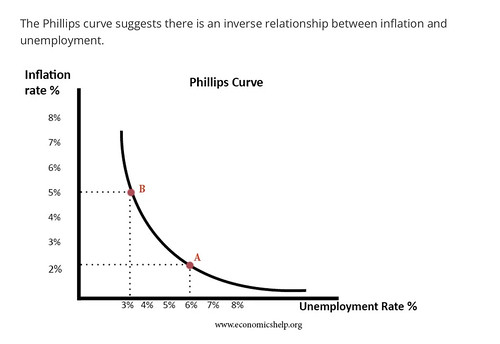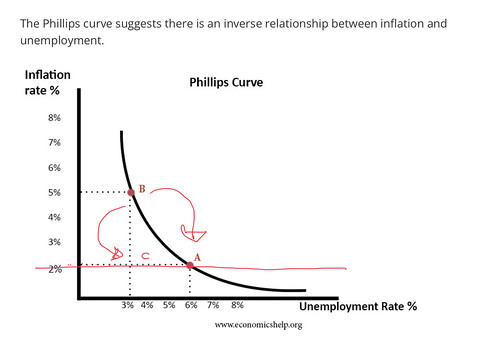Mullardman
Moderately extreme...
You can't add up?
I guess only the poor are gonna notice the small change.I do find the food price increases puzzling. I was in Aldi yesterday and really don’t think stuff has gone up much, if at all. Contrast that to Greece, where I’ve just been for a week, where I’d say the equivalent produce (at a large AB supermarket) was at least twice the price. Why is that?
I guess only the poor are gonna notice the small change.
For the comparison to be valid, you would have to look at the prices of the same items (preferably something universal like a kilo of oranges or a salad etc.) in an equivalent Greek Aldi. Comparing AB to Aldi is like comparing Sainsbury’s and Lidl. And location counts: if you shop in Mykonos, you are definitely going to pay more.I do find the food price increases puzzling. I was in Aldi yesterday and really don’t think stuff has gone up much, if at all. Contrast that to Greece, where I’ve just been for a week, where I’d say the equivalent produce (at a large AB supermarket) was at least twice the price. Why is that?
For the comparison to be valid, you would have to look at the prices of the same items (preferably something universal like a kilo of oranges or a salad etc.) in an equivalent Greek Aldi. Comparing AB to Aldi is like comparing Sainsbury’s and Lidl. And location counts: if you shop in Mykonos, you are definitely going to pay more.
My experience (admittedly 6-7 years ago) was that produce (fruit, veg) in Greek supermarkets was much, much cheaper. Some items like meat were about the same, and imported specialty items were more expensive. Fish was cheaper if you stuck to local farmed sea bass or sea bream. Wine was cheaper if you went with the excellent local wines. Etc.
Factor property prices into that and we're the poor man of Europe.Highest inflation in the G7 - almost double that of France with state owned energy providers and a cap on prices.
https://www.theguardian.com/business/2022/may/18/why-uk-highest-inflation-g7-ukraine-covid-brexit
Oh ok, funnily enough a few Spanish friends said that prices had risen markedly since they last went home.Clearly that is true with all goods and services but doesn’t help me understand why, in my very recent experience, groceries cost an awful lot more in an EU country than in the UK. Fuel was also more expensive.
We are told again and again that an increase in wages will result in even higher inflation. It won’t. It’s another lie we are told to keep money flowing from the poor to the rich.We should all "consider carefully" before asking for a wage rise, says the governor of the Bank of England (he's on £500k/yr) because rising wages will add to inflation.
"What drives inflation?". Adam Tooze of Columbia University has an enlightening graphic which shows that corporate profits have soared way above their previous 40-year average, whilst the relative cost of labour has plummeted. It really is quite shocking.



I do find the food price increases puzzling. I was in Aldi yesterday and really don’t think stuff has gone up much, if at all. Contrast that to Greece, where I’ve just been for a week, where I’d say the equivalent produce (at a large AB supermarket) was at least twice the price. Why is that?
One way that food price increases are disguised is manufacturers reducing the pack size. I noticed this practice accelerating after the 2009 crash.
Also, would you notice if a packet of pasta went up from say, 50p to 68p? Or 15p on a pack of soap powder? If you have a large margin in your disposable income you are not going to notice small (in cash terms) increases. Luxury or high quality-high margin, groceries are less affected by cost increases in the short term.
Mr Micawber said it best: "Annual income twenty pounds, annual expenditure nineteen, nineteen and six, result happiness. Annual income twenty pounds, annual expenditure twenty pounds ought and six, result misery."
Or maybe all the working-poor people struggling with the "eat or heat?" dilemma or using food banks are imagining it?
Don’t know where you shop but pasta is cheaper than that in Aldi! Yes, I notice price increases but overall, as long as you keep out of M&S, Waitrose, Sainsburys and CoOp, I still maintain that food in the UK is cheap. It’s other costs going up which is putting a squeeze on budgets.
Another point to bear in mind is that a weekly shop for two middle-aged people is a LOT cheaper than a family shop for four of five, especially if you have adolescents at home. (plus clothes and shoes...the amount of money I've spent on kids shoes over the last 20 years is frightening)
But yes, food has been "cheap" in the UK for many years. Prices driven downwards by supermarket chains to the detriment of food quality, nutrition, farmers prosperity and the environment. We've got used to it though and "cheap" is relative. A 5% or 10%, or 20% hike in any essential commodity is going to hit the less well off very hard indeed.
Pasta: https://groceries.aldi.co.uk/en-GB/p-cucina-penne-1kg/4088600103792
Nothing wrong with this one. How cheap can it possibly be?
https://groceries.aldi.co.uk/en-GB/p-everyday-essentials-penne-pasta-500g/4088600233765
That's great.
You could volunteer at your nearest food-bank. Cheer up the users by telling them how fortunate they are not to live on the banks of the Ionian Sea, where, as you stocked up the yacht on one of your annual holidays, you noticed that groceries were more expensive than the UK. I'm sure they'd be grateful and relieved to hear this.
(They are probably imagining their own poverty anyway...nothing that some sensible budgeting and cookery lessons couldn't sort out) (...and after all, money were short when I were a kid too....didn't do me any harm...)
The point I’m making is that food in the UK is cheap. I can’t see how it could be any cheaper unless those involved in the industry were given pay cuts. It’s other costs increasing which is causing issues, including for food producers.
